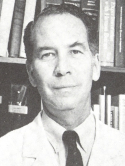| Abstract: |
Total body irradiation (TBI) and busulfan were compared for late effects in a murine model of bone marrow transplantation (BMT). Male C57BL/6 mice were given fractionated TBI or busulfan given in 4 equal daily doses followed by infusion of 107 syngeneic bone marrow cells. Total doses of 16.4 Gy TBI and 3.4 mg busulfan were chosen for their equivalence in inducing near complete engraftment of allogeneic marrow from donor mice of the LP strain. The two treatment groups had a late wave of mortality starting at about 80 weeks after transplantation. Specific tissue damage was manifested in bone marrow stem cells, splenic T-cell precursors, hair greying and cataract formation for both TBI and busulfan but to varying degrees. Severe nephrotoxicity and anemia were observed only after TBI. Although both busulfan and TBI kill early marrow stem cells and are effective preparative agents in bone marrow transplantation, their effects on other stem cell and organ systems are not similar. In addition, many of the injuries seen are late to occur. The delayed expression of injury deserves careful long-term evaluation of BMT recipients before the therapeutic potential of effective preparative regimens can be fully appreciated. © 1989. |



